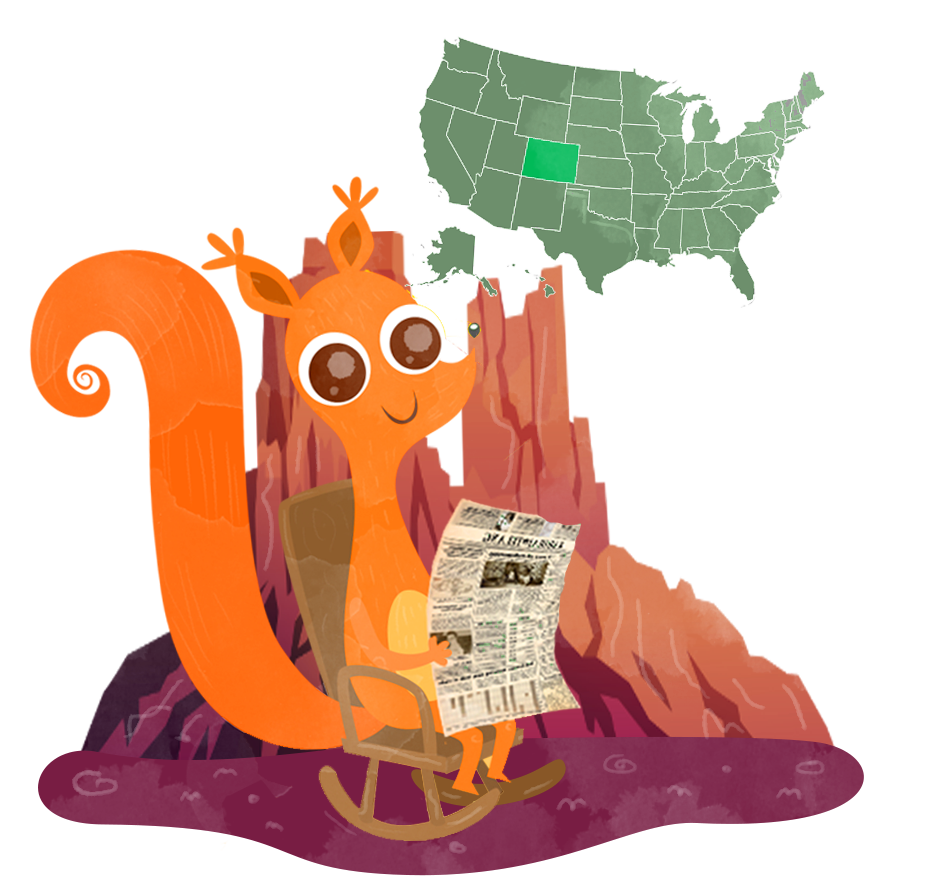
If you’re considering retiring in Colorado, pros and cons exist for sure. But, at the end of the day, there’s quite a lot to love about life in the Centennial State.

Nature, baby!
Colorado is home to some of the most stunning natural vistas the United States has to offer. There are waaaay more amazing natural destinations in Colorado than we could ever list in this blog, but here are some of the highlights:
Garden of the Gods
Do you like pristine alpine forests? What if they’re broken apart by some of the most stunning naturally occurring rock formations on the planet? Located just minutes from Colorado Springs, Garden of the Gods has it all, including miles and miles of hiking trails and rock climbing and opportunity to engage in various other outdoor activities.

Great Sand Dunes National Park and Preserve
Yes, the Great Sand Dunes National Park and Preserve has the largest sand dunes in North America. Yes, it’s home also to Medano Creek, where you can swim and kayak and tube. There are also plenty of other outdoor activities for you to engage with at the park, including sand sledding, night hiking, and climbing to alpine lakes and mountains.
Maroon Bells
The Maroon Bells, located 10 miles west of Aspen, are the most photographed mountains in America. Even just checking the Google search results gives you a pretty good idea why. But the park surrounding these gargantuan peaks has plenty (and we mean plenty) of scenic photography spots along the hiking trails.
Hanging Lake
To get to Hanging Lake, you’ll need to endure a somewhat-grueling 12 mile hike, but the destination is well worth the effort if you’re up for it. The pristine forest pool is rife with ancient trees and waterfalls that cascade beautifully into the serene pool.
Healthy living

Given everything we’ve just discussed about the abundance of opportunity to engage with outdoor activities, it will come as a surprise to exactly nobody that those who live in Colorado tend to be healthier than their compatriots from other states.
Colorado’s obesity rate of 25.1% is significantly lower than the national average of 41.9%.
This is likely due to the fact that 83% of adults in Colorado engage in some sort of physical activity in their leisure time (compared to 77% nationally). What’s more, 2 Colorado cities (Denver and Aurora) ranked in the top 20 US cities for overall personal health according to the American Fitness Index.
The result of all this? Colorado ranks in the top 10 US states for life expectancy, with an average resident life span of 78.3 years, compared to the national average of 76. Does this mean moving to Colorado will make you live 2 years longer? Not necessarily, but perhaps that explains the jump in the number of people moving to the state (nearly 200,000 in 2021).
Climate
“Invigorating” would be a rather appropriate word to describe the climate in Colorado. “Erratic” is another solid choice. Because of the wild topography of the state, which is flush with mountain ranges, valleys, and plateaus, the weather changes drastically, largely depending on how many feet above sea level you happen to be at the moment.
The benefits of this, however, are that you can basically choose the kind of weather you like and find somewhere in Colorado that fits the bill. Parts of the state are snowy, alpine postcards waiting to happen basically year-round, while others are literal deserts.
Tax friendly
Colorado’s tax laws are incredibly friendly to retirees.
If you’re between 55 and 64 and receiving social security benefits, you can deduct up to $20,000 per year from your tax burden if you’re a Colorado resident. If you’re 65 or older, there is no cap on how much you can deduct.
Other types of retirement income, such as pensions, are also included in this plan.
Colorado also has a measly 2.9% sales tax, so it will be cheaper to purchase goods there. Their property taxes are also rather low comparatively. In Colorado, you only pay taxes on 7.15% of the market value of your home (it’s 100% in Rochester, NY, for comparison).
So, if you own a $300,000 home in Colorado, it’s only worth $21,450 when it comes to assessing your tax burden (that’s a very, very good thing). Even better, Colorado offers several homestead exemptions for qualifying seniors: if you’ve lived in the state for 10 years or more and are 65 years or older, you will get a 50% reduction in your tax burden for the first $200,000 of value of your home.

There’s plenty to love about the idea of retiring in Colorado, but don’t get too excited yet: there are some downsides.
Colorado is expensive

According to the state’s Office of Economic Development and International Trade, it will cost you about 12% more on average to live in Colorado than the national average.
The average home in Colorado, for example, costs $549,807 according to Zillow, which is about $100,000 higher than the national average.
RentCafe also notes that goods and services are about 1% more expensive in Colorado than the national average (though utilities, healthcare, and transportation are all slightly less expensive).
High altitudes
Colorado is the highest contiguous state in the US (and we’re not talking about their early adoption of recreational Marijuana laws here). The average altitude in Colorado is about 6,800 feet above sea level, and about ¾ of US land above 10,000 feet is in Colorado.
This isn’t necessarily a problem, however if you have any sort of breathing difficulty, living in Colorado might be a struggle for you.
Extreme weather
The wild topography of Colorado results in some fairly unpredictable — and, in some cases, extreme — weather patterns. The plateaus are known for spontaneous blizzards and the mountains get about as much snowfall as anywhere in the country.
What’s more, because of the sharp in– and decreases in elevation throughout the state, weather can change extraordinarily quickly. Day-to-day temperature variations average out to 25℃, and can even fluctuate up to 90℃ in the winter.

If all this sounds excellent, but you’re concerned about being able to afford to live in Colorado, now’s the time to start planning — and Planswell can help!
If you’re curious about when you might be able to retire and with how much stashed away, our planning engine will build you a financial plan in minutes. The best part? It’s totally free.
YOUR FREE FINANCIAL PLAN
Are you ready to invest in your future?
Build your free plan today.
Start now